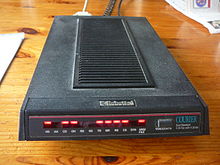A competitor to dominant cable provider Mediacom has been accused of stealing the cable company’s broadband service and reselling it as its own in a bizarre Georgia case that also includes a feud between Albany’s Water, Gas & Light Commission and the defendant.
Back in December, a Georgia Power representative alerted Mediacom about unauthorized equipment placed on a utility pole. When Mike Donalson, Mediacom’s regional security manager arrived at the location off McCollum Drive in Albany, he was surprised to discover a residential Mediacom cable modem powered by a standard car battery sealed in a weatherproof enclosure. Tracking the wiring that exited the box, Donalson eventually found himself at the front door of Addtran Logistics, Inc.
Mediacom immediately launched an investigation and discovered that L2Networks had allegedly contracted with Addtran to provide Internet service. Mediacom alleges in its lawsuit L2 provided the service through a cable modem originally assigned to Beahn’s mother-in-law for residential broadband service at her home.
The company called the Dougherty County Police Department, who arrested Beahn on felony charges for theft of service.
Mediacom is seeking compensatory and punitive damages in its civil suit.
Beahn first came into national prominence in May when he filed the first formal Net Neutrality complaint with the Federal Communications Commission against the Albany Water, Gas & Light Commission claiming the local authority was refusing to allow L2 employees 24-hour access to utility-owned facilities where L2 has placed equipment.
[flv]http://www.phillipdampier.com/video/WFXL Albany Mediacom Files Suit Against L2 6-8-12.flv[/flv]
WFXL in Albany, Ga. reports L2 Networks is headed to court to face charges it used to a Mediacom residential cable modem to deliver business class service under L2’s name. (1 minute)


 Subscribe
Subscribe







